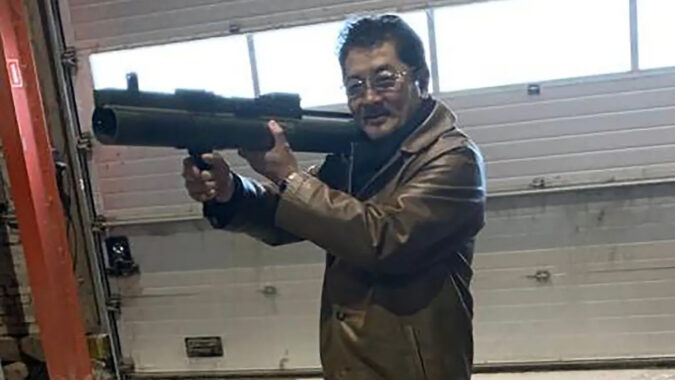The U.S. Department of Justice unsealed a superseding indictment on Wednesday in a Manhattan federal court charging a Japanese national with trying to sell nuclear materials, including materials capable of being used to produce a nuclear bomb, to Iran and trying to purchase a large number of weapons to arm a terrorist group.
Takeshi Ebisawa, 60, and co-defendant Somphop Singhasiri, 61, were previously charged in April 2022 with international narcotics trafficking and firearms offenses, the DOJ said in a statement. Both men face numerous life sentences for a long list of criminal charges.
Ebisawa was charged again in the new superseding indictment with trying to sell nuclear materials to a man that he thought was an Iranian general.
“The defendant stands accused of conspiring to sell weapons grade nuclear material and lethal narcotics from Burma, and to purchase military weaponry on behalf of an armed insurgent group,” said Assistant Attorney General Matthew G. Olsen of the Justice Department’s National Security Division. “It is chilling to imagine the consequences had these efforts succeeded and the Justice Department will hold accountable those who traffic in these materials and threaten U.S. national security and international stability.”
Ebisawa told an undercover DEA agent and a DEA confidential source that he had access to a large quantity of nuclear materials that he wanted to sell, which he backed up by sending photos “depicting rocky substances with Geiger counters measuring radiation.”
As part of the investigation, the undercover agent agreed “to help Ebisawa broker the sale of his nuclear materials to [the undercover agent’s] associate, who was posing as an Iranian general (the General), for use in a nuclear weapons program.”
Ebisawa also sent a list to the undercover agent of weapons that he was looking to purchase to arm a terrorist group in Burma. The indictment mentioned several co-conspirators but did not name them.
The weapons that he sought to purchase included 5,000 AK-47s with 1 million rounds of 7.62x39mm ammo and 25,000 magazines; 5,000 M-16s with 1 million rounds of 5.56x45mm ammo and 25,000 magazines; 20 M-60 belt-fed machine guns with over 100,000 rounds of various types of 7.62x51mm ammo, dozens of various sized mortar launches with thousands of projectiles, sniper rifles, RPGs, and surface-to-air missiles.
“With the assistance of Thai authorities, the Nuclear Samples were seized and subsequently transferred to the custody of U.S. law enforcement authorities,” the statement said. “A U.S. nuclear forensic laboratory examined the Nuclear Samples and determined that both samples contain detectable quantities of uranium, thorium and plutonium. In particular, the laboratory determined that the isotope composition of the plutonium found in the Nuclear Samples is weapons-grade, meaning that the plutonium, if produced in sufficient quantities, would be suitable for use in a nuclear weapon.”

